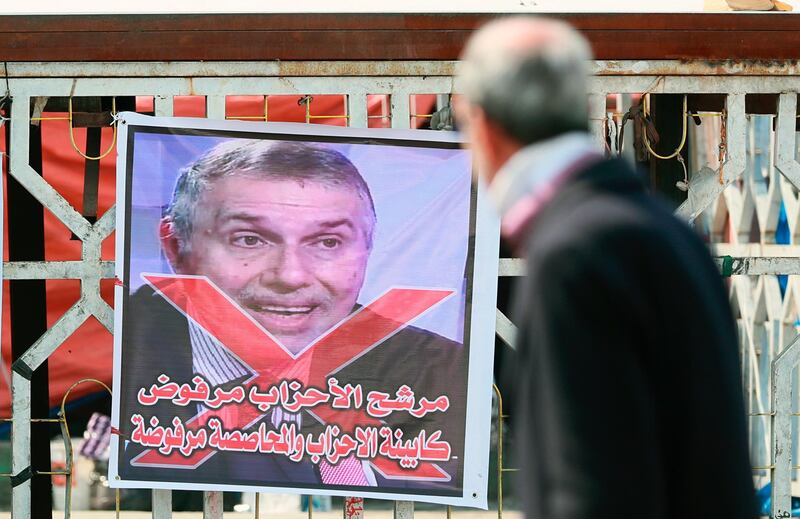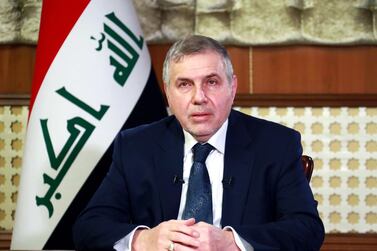The Iraqi Parliament on Sunday postponed for a third time a session to pass Prime Minister-designate Mohammed Allawi’s proposed Cabinet due to lack of quorum.
Mr Allawi held meetings with parliamentary groups and key officials, such as Speaker Mohammed Al Halbousi, but struggled to secure support from political blocs.
Mr Allawi needs a simple majority of the Parliament's 329 MPs to pass his government, the Iraqi Supreme Court said.
More than a 100 politicians showed up to Sunday's session, according to local reports said. No date has been set for the next sitting.
Political parties have until Monday to end their stalemate and agree on a new government or President Barham Salih will, as required by the constitution, designate a prime minister to end the protracted political vacuum.
Political sources say Mr Salih intends to propose intelligence chief Mustafa Al Kazimi.
Iraq's Parliament is the most divided in its recent history and Mr Al Allawi is struggling to secure support from Sunni Arab and Kurdish minorities for his Cabinet.
Over the past week, he has adjusted the line-up to bolster support, while also holding talks with Sunni and Kurdish representatives.
The deadlock has failed to calm public anger over corruption and poor public services that have rocked the country since October.
Anti-government protesters oppose Mr Allawi as they view him as part of the political system they want to bring down.
Mr Allawi, the previous minister of communications, was appointed to the position on February 2.
He had a month-long deadline to form a new government, if he gains Parliament's confidence he's expected to lead until early elections.
Mr Allawi had previously said that political blocs were not allowing him to choose independent, nonsectarian individuals to head the next government.
Kurdish and Sunni parties who feel they will lose their position in Mr Allawi’s proposed government have severely opposed his choices.
Sunni leaders, especially Mr Al Halbousi, and Kurdish parties have been so set in their positions that there is no turning back for Mr Allawi, said Kirk Sowell, an Iraq expert at Utica Risk Services.
“Allawi would have to cave into them and nominate their people to get their support," Mr Sowell said. "As it is, he is going to face protests over the lack of a clear commitment to early elections, which he has promised."
The delay prolongs the deadlock the country is facing after anti-government protests broke out four months ago, forcing the resignation of prime minister Adel Abdul Mahdi.
More than 500 people have been killed in the protests.
Protests in Baghdad's Tahrir Square on Sunday morning demanded that Mr Allawi withdraw his nomination.
He issued an ambitious list of promises when he was nominated in early February, which include early elections, holding to account those who killed protesters in the anti-government demonstrations, ending foreign interference and keeping non-armed groups in check.
Mr Allawi is not backed by any of the political parties in Parliament.
A parliamentary source said early on Sunday that voting on Mr Allawi's proposed ministerial Cabinet "is subject to the amendments imposed on him by the opposing blocs".
"If no amendment is made to the ministerial Cabinet, the session will not be held to give confidence," the source said.
The first session was held last Thursday but failed to have the numbers and many politicians were unhappy with Mr Allawi's ministerial nominees.
A second session was expected to be held on Saturday but was delayed until Sunday.







